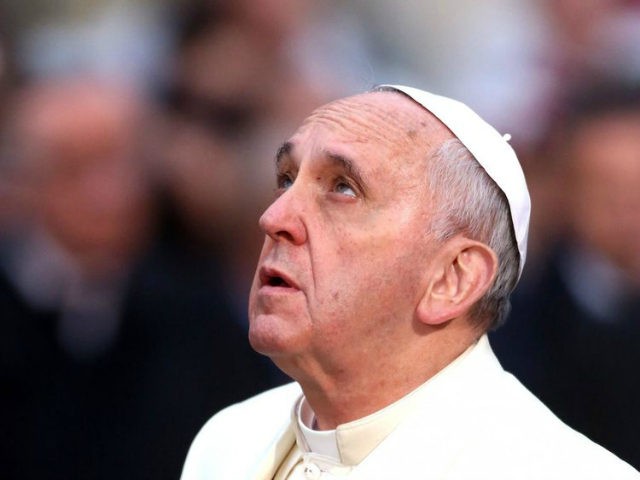Pope Francis said Thursday that walls between nations cannot endure because in the end God will tear them down.
“We can build any number of walls and close our doors in the vain effort to feel secure in our wealth, at the expense of those left outside. It will not be that way for ever,” the pope said in his message for the third annual World Day for the Poor.
“The ‘day of the Lord,’ as described by the prophets, will destroy the barriers created between nations and replace the arrogance of the few with the solidarity of many,” Francis said.
“The marginalization painfully experienced by millions of persons cannot go on for long. Their cry is growing louder and embraces the entire earth,” he said, adding that “the poor are a powder keg. If it is set on fire, the world will explode.”
In his message, the pope focused particularly on what he sees as a growing disparity between the wealthy and the poor.
“The inequitable distribution of wealth created a significant number of poor people, whose condition appeared all the more dramatic in comparison with the wealth attained by a privileged few,” he wrote, in reference to the period when the biblical psalms were composed.
“The economic crisis has not prevented large groups of people from accumulating fortunes that often appear all the more incongruous when, in the streets of our cities, we daily encounter great numbers of the poor who lack the bare necessities of life and are at times harassed and exploited,” he said.
As is his custom, the pope also raised up the case of migrants as victims of exploitation.
There are “millions of immigrants who fall victim to any number of concealed interests, often exploited for political advantage, and are refused solidarity and equality,” the pope declared.
With the passage of time and the advances of civilization the number of poor people increases rather than diminishing, Francis asserted, and “the poor are always poorer, and today they are poorer than ever.”
In point of fact, however, this is not exactly true and the pope’s case might be stronger if he acknowledged the real data regarding poverty and its remedies.
As a Brookings Institution report noted late last year, “2019 will start with the lowest prevalence of extreme poverty ever recorded in human history — less than 8 percent. In all likelihood, this level will set the ‘ceiling’ for a new era of even lower single-digit global poverty rates for the foreseeable future.”
According to the widely used “international poverty line,” people are considered to be in “extreme poverty” if they live on less than $1.90 per day or its equivalent.
In the world today, less than 10 percent of the global population lives in extreme poverty, whereas just 30 years ago (1990), some 37 percent of the world lived in extreme poverty. Two centuries ago nearly everyone in the world lived in extreme poverty.
While in the year 1800 almost 90 percent of the world’s population subsisted on less than $1 a day, that percentage had been constantly falling, dropping below 20 percent in the year 2000 and below 10 percent in the present day.
It is not only “extreme poverty” that is falling, however. The global poverty rate has been falling across every single poverty line, whether the bar is set at $1.90 a day or $10 a day.
It must also be also acknowledged that there is no “gap” between the wealthy and the poor, since the vast majority of people live somewhere in the middle.
Poverty is not created. It has always existed and is the natural state of man. The reason that there are fewer poor people today is because wealth has been created. There is no point in searching for the causes of poverty but rather in investigating, implementing, and propagating the causes of wealth.
If eradicating poverty is to pass from being an ideological mantra to a realistic goal, there is no better place to start than with the facts.

COMMENTS
Please let us know if you're having issues with commenting.